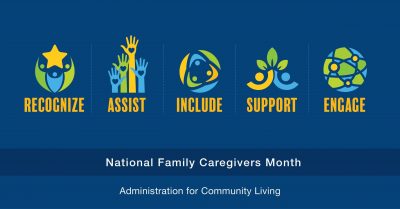
During November each year we highlight the importance of family caregivers, the primary source of support for older adults and people with disabilities in the U.S. One in five Americans is an unpaid family caregiver, arguably the nation’s largest workforce. In Indiana, that workforce is 850,000 Hoosiers strong, providing care valued at $9.3 billion annually.
The Administration for Community Living reports many caregivers work and also provide care, experiencing conflicts between competing responsibilities. Research indicates caregiving also takes a significant emotional, physical, and financial toll. With nearly half of all caregivers over age 50, many are vulnerable to a decline in their own health. Studies show that coordinated support services can reduce caregiver depression, anxiety, and stress, and enable them to provide care longer, which avoids or delays the need for costly institutional care.
Indiana’s long-term services and supports system (LTSS) provides support for family caregivers. Each of Indiana’s Area Agencies on Aging offers specialized caregiver programs. But as a state, we rank last in the nation in support of family caregivers, according to the Long-Term Services & Supports State Scorecard 2020 update. Indiana lacks important workforce policies that protect and support working family caregivers, including paid family leave requirements, mandatory sick days, flexible sick days, enhanced family leave protections and unemployment protections for family caregivers.
Indiana is working hard to improve its LTSS system, and Indiana’s LTSS Scorecard reflects that. We have increased our overall ranking since the last Scorecard report primarily by making improvements within LTSS. But as champions for caregivers, we must broaden our advocacy horizons beyond LTSS to include the workplace. Our state administration’s top priorities include job creation and workforce skill building; those same employees are working caregivers. We must value their significant contributions and sacrifices by enacting public policies that enable them to fulfill both their work and family roles.
